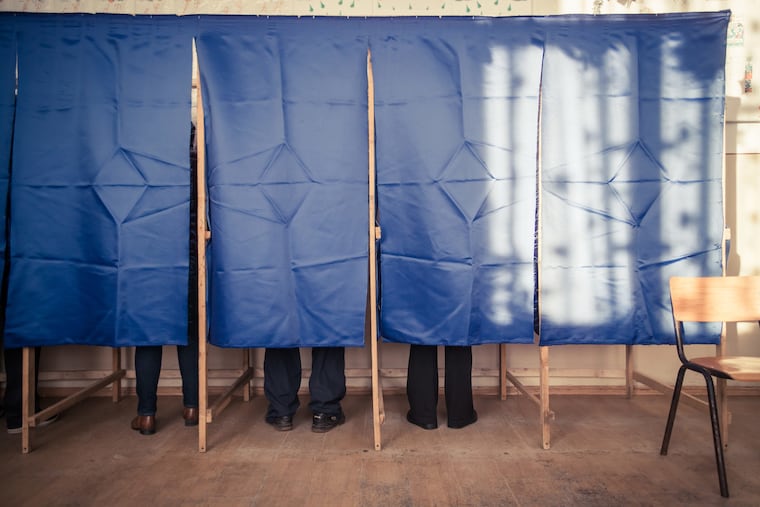I’m worried my vote in the Pa. primary — my first ever — won’t be safe | Opinion
As a young immigrant, I dreamed for years about the day I would enter the voting booth. Now I worry my vote won't be fairly counted.

As a young immigrant, I dreamed for years about the day I would enter the voting booth and press that large green button. When I was a little girl, my father would take me to the polls on Election Day, whether the midterms, local elections, or the general election — he made sure I was there watching him do his civic duty. He would then take me to breakfast and passionately instill in me the American values he so strongly believes in. At my citizenship ceremony last October, with tears in my eyes, I finally registered to vote in Pennsylvania.
Yet today, the right to have my vote counted is called into question.
The Democratic primary elections stumbled from the start. The app unveiled during the Iowa caucuses was reportedly rushed, full of glitches, and used by untrained precinct chairs. During their caucus, the Nevada Democratic Party vowed not to use the same application in fear of repeating the Iowa disaster.
The mobile app issues allegedly stemmed from a coding error that delayed the transmission of Iowa caucus results from the application to the Iowa Democratic Party. While there were no reports of cybersecurity breaches, the app’s creator, Shadow Inc., attracted a slew of conspiracy theories.
Shadow Inc., launched by a left-leaning nonprofit, was hired by the Iowa Democratic Party to develop the caucuses’ reporting app. However, Shadow Inc. has also developed text messaging software for Pete Buttigieg and Joe Biden, causing some social media users to don their shiny tin foil hats and accuse Buttigieg of buying an Iowa victory.
Election security has been a prominent concern since the 2016 presidential election cycle. On March 19, 2016, John Podesta, chairman of Hillary Clinton’s campaign, clicked on a fake email that asked him to change his password. Months later, 20,000 DNC emails were leaked by WikiLeaks, days before the Democratic National Convention. Since then, election interference has been the subject of an FBI investigation, and federal officials announced that Russian hackers had targeted voting systems in 21 states during the 2016 election.
» READ MORE: How your vote will get cast and counted on Philly’s new voting machines | Opinion
The lack of outside vetting for the app — the Department of Homeland Security claimed Iowa Democrats declined a DHS offer to test the Shadow application, which the Democrats have since denied — is not only a glaring election security issue, it’s also a political issue. Employing a company with ties to multiple Democratic presidential candidates puts the app’s legitimacy into question. How can we expect the American people to trust our processes when we take papier-mâché strength precautions?
At a time in American history when trust in our political process has a weak pulse, we cannot afford to be careless. As potential voters navigate modern politics, they should feel confident that when they enter the voting booth, their votes will be protected.
In a country whose foundation is the power of the people, whose disenfranchised have waged civil rights movements for their right to vote, our voter security should be no question.
The New York Times reported last week that intelligence officials have new information suggesting that Russia intends to interfere in both the current primaries and the general election. Are we as vulnerable now as we were in 2016?
» READ MORE: The Iowa caucus was chaotic garbage. Why not let Pennsylvanians vote first instead? | Opinion
As primaries continue and general elections approach, we must enforce new restrictions on political technology. It should be a requirement, not an option, that apps be tested and approved by the Department of Homeland Security before being used by the public.
Companies that develop this technology should also not have a partisan leaning, let alone ties to individual candidates. That gives the public more room to trust apps, after all the public scrutiny of Iowa.
While there is no set procedure to resuscitate the American people’s trust, there are precautionary steps we can take not to weaken it further. Ensuring that our political technology is vetted and secure is unquestionably one of them.
The Pennsylvania primary will be the first time I walk into the voting booth myself and press that large green button. While I am immensely excited to perform my civic duty, I am saddened to say that I will not be voting with confidence that my vote will be protected. I hope that America can wake up and change my feelings by the next election.
Luisa Suarez is a sophomore journalism and political science student at Temple University.